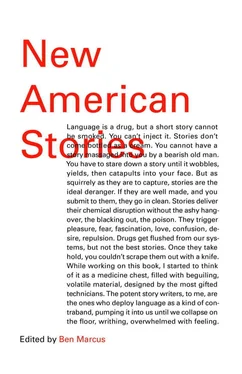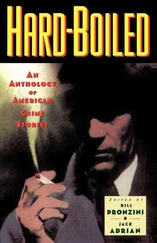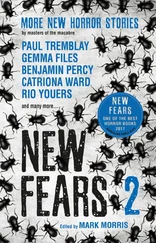But she only sat and looked and soon the inmates began to get restless. I realized that my hand was covering the lower part of my face, in needless parental disguise. People, a few at a time, then more, then groups, all leaving now, some crouching down as they moved between the rows. Maybe they were being careful not to block the view of others but I thought that most were slinking out, in guilt and shame. Either way, the view stayed the same, Kate on camera, sitting there looking at me. I felt hollowed out but I couldn’t leave while she was still there. I waited for the screen to go blank and finally, long minutes later, that’s what happened, in streaks and tremors.
The room had emptied out by the time a cartoon appeared, a fat boy rolling down a bumpy hill. Feliks Zuber was still in his seat up front, he and I in lone attendance now, and I waited for him to turn and wave at me, or simply sit there, dead.
—
I opened my eyes sometime before first light and the dream was still there, hovering, nearly touchable. We can’t do justice to our dreams, reworking them in memory. They seem borrowed, part of another life, ours only maybe and only in the farthest margins. A woman is standing beneath a ceiling fan in a tall shadowy room in Ho Chi Minh City, the name of the city indelibly webbed within the dream, and the woman, momentarily obscured, is stepping out of her sandals and beginning to look familiar, and now I realize why this is so, because she is my wife, very weirdly, Sara Massey, slowly shedding her clothing, a tunic and loose trousers, an ao dai.
Was this meant to be erotic, or ironic, or just another random package of cranial debris? Thinking about it made me edgy and after a moment I lowered myself from the end of the top bunk, quietly. Norman lay still, wearing a black sleep mask. I dressed and left the cubicle and went across the floor and out into the predawn mist. The guardpost at the camp entrance was lighted, someone on duty to admit delivery vans that would be arriving with milk, eggs and headless chickens from local farms. I cut across to the old wooden fence and ducked between the rails, then stood awhile, staring into the dark, aware of my breathing, surprised by it, as if it were an event that only rarely and memorably takes place.
I felt my way slowly along a row of trees that lined one side of a dirt path. I moved toward the sound of traffic and reached the highway bridge in ten or twelve minutes. The bridge itself was closed to traffic, with repairwork in perennial progress. I stood at a point roughly midway across and watched the cars speed below me. There was a half moon hanging low and looking strangely submerged in the pale mist. Traffic was steady, coming and going, pickups, hatchbacks, vans, all carrying the question of who and where, this early hour, and splashing the unwordable sound of their passage under the bridge.
I watched and listened, unaware of passing time, thinking of the order and discipline of the traffic, taken for granted, drivers maintaining a distance, fallible men and women, cars ahead, behind, to the sides, night driving, thoughts drifting. Why weren’t there accidents every few seconds on this one stretch of highway, even before morning rush? This is what I thought from my position on the bridge, the surging noise and sheer speed, the proximity of vehicles, the fundamental differences among drivers, sex, age, language, temperament, personal history, cars like animatronic toys, but that’s flesh and blood down there, steel and glass, and it seemed a wonder to me that they moved safely toward the mystery of their destinations.
This is civilization, I thought, the thrust of social and material advancement, people in motion, testing the limits of time and space. Never mind the festering stink of burnt fuel, the fouling of the planet. The danger may be real but it is simply the overlay, the unavoidable veneer. What I was seeing was also real but it had the impact of a vision, or maybe an ever-present event that flares in the observer’s eye and mind as a burst of enlightenment. Look at them, whoever they are, acting in implicit accord, checking dials and numbers, showing judgment and skill, taking curves, braking gently, anticipating, watchful in three or four directions. I listened to the air blast as they passed beneath me, car after car, drivers making instantaneous decisions, news and weather on their radios, unknown worlds in their minds.
Why don’t they crash all the time? The question seemed profound to me, with the first touch of dawn showing to the east. Why don’t they get backended or sideswiped? It seemed inevitable from my elevated perspective — cars forced into the guardrails, nudged into lethal spins. But they just kept coming, seemingly out of nowhere, headlights, taillights, and they would be coming and going all through the budding day and into the following night.
I closed my eyes and listened. Soon I’d be going back to the camp, sinking into the everydayness of that life. Minimum security. It sounded childlike, a term of condescension and chagrin. I wanted to open my eyes to empty roads and blazing light, apocalypse, the thundering approach of something unimaginable. But minimum security was where I belonged, wasn’t it? The least possible quantity, the lowest degree of restriction. Here I was, a truant, but one who would return. When I looked, finally, the mist was lifting, traffic heavier now, motorcycles, flatbeds, family cars, SUVs, drivers down there peering, the noise and rush, the compelling sense of necessity.
Who are they? Where are they going?
It occurred to me then that I was visible from the highway, a man on the bridge, at this hour, in silhouette, a man standing and watching, and it would be a natural response for the drivers, some of them, to glance up and wonder.
Who is he? What is he doing there?
He is Jerold Bradway, I thought, and he is breathing the fumes of free enterprise forever.
(for 2 or more players)
Little children tend to disappear. Especially if there are large trees, tall grass or white canvases nearby. One child is born It. He covers his eyes with his palms & counts to 100. When he uncovers his eyes he sings:
A bushel of wheat, a bushel of rye;
If you’re not ready,
Close your eyes.
The weakest children will close their eyes & return home where they will never be allowed to open their eyes again. The It child seeks out everything that has been hidden. He digs in the earth, he combs through the clouds, he strips the bark from the trees & he skins all the animals. When he finds another child he shouts, “1-2-3-4 for ______________,” naming the one he has found.
He covers his eyes with his palms again & counts to 100. When he wakes up the other children have grown up & are driving their cars into the lakes, surrounded by millions of fireflies.
(for 7 or more players)
Children must be taught not to play favorites. One child is born It. The It-child carries a clean white handkerchief with him wherever he goes. When he comes upon a circle of children he runs around the circle & drops the handkerchief behind one of the children. That child must run in the opposite direction around the circle of children. The children hold hands & refuse to allow either the It-child or the chosen child to stop running. These two continue running for the rest of their lives.
There is one child who is born inside the circle, which is called the mush pot. This child also has a clean white handkerchief & must take turns looking into the eyes of each of the children while showing each the handkerchief. The handkerchief was left for the mush-pot-child by his father, whom he has never met. His father drives a bright blue car & can be seen working at the candle factory five nights a week.
Читать дальше










![Женя Джентбаев - neo futura [stories]](/books/692472/zhenya-dzhentbaev-neo-futura-stories-thumb.webp)

